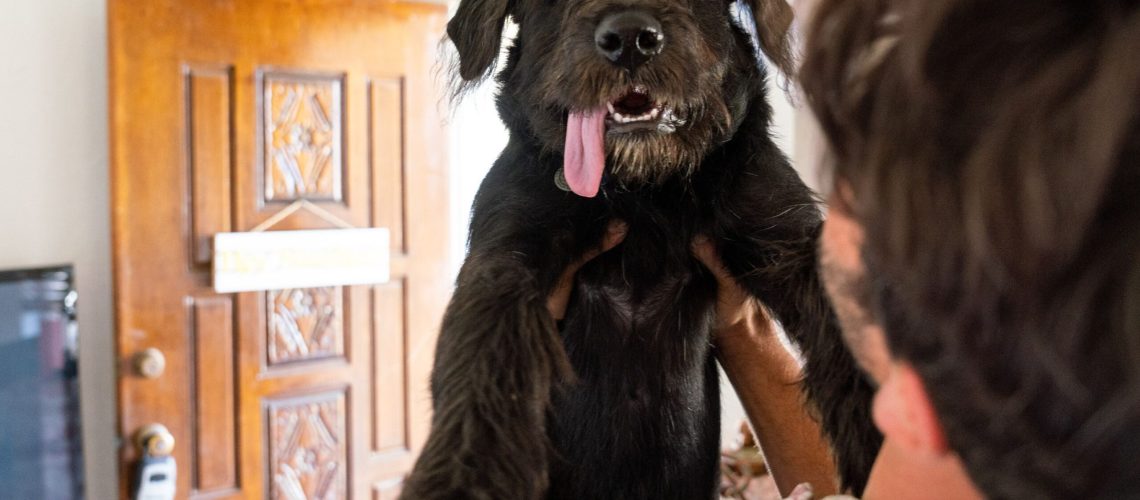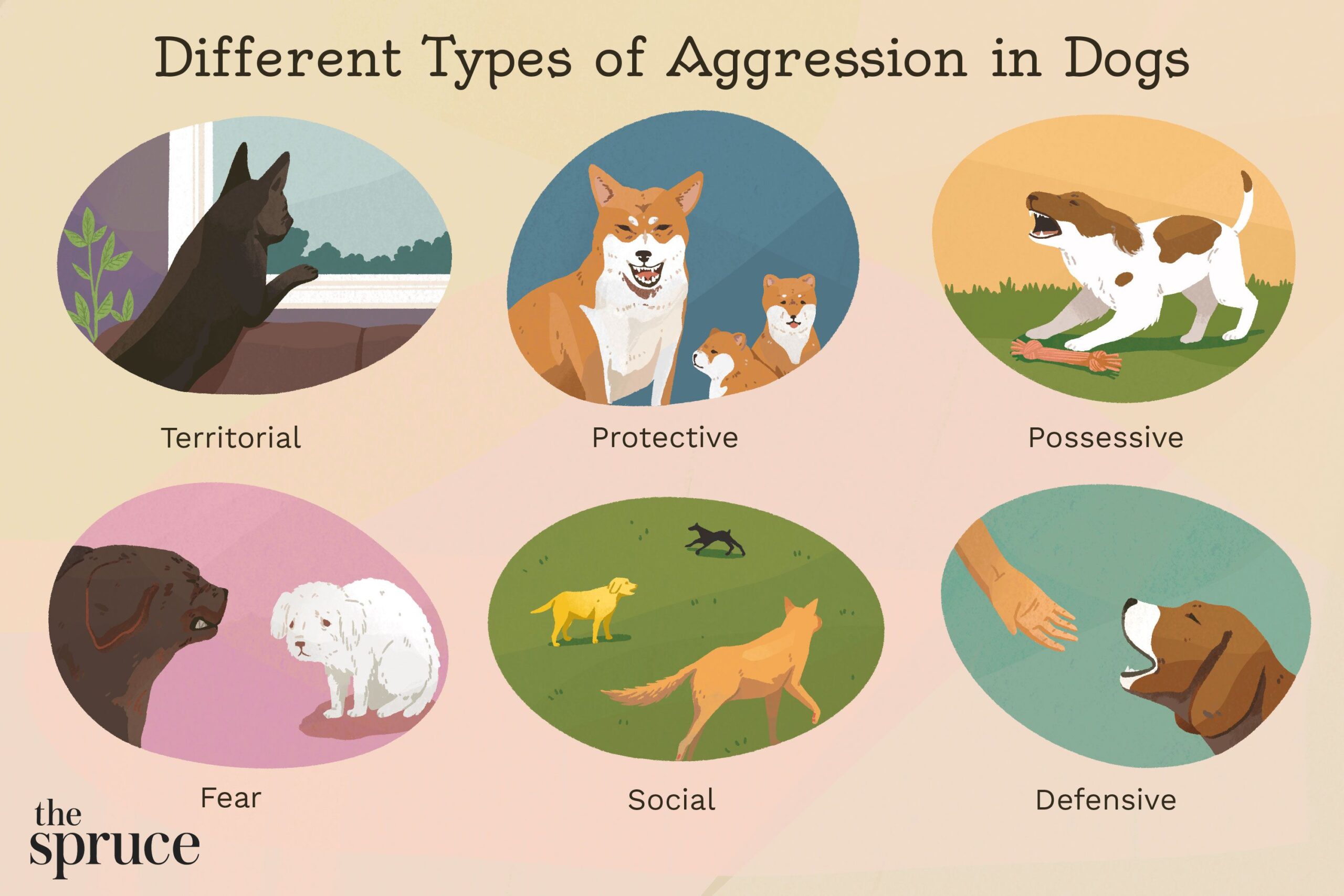In the quest to understand our furry companions better, researchers have developed tests that can predict a puppy's temperament and personality. These tests provide valuable insights into their behavior and help owners make informed decisions about their new family member.
Key Takeaways:
-
1. Testing puppies for temperament and personality can help predict their future behavior and suitability for specific environments or roles.
2. These tests typically involve assessing the puppy's response to various stimuli, such as strangers, loud noises, and novel objects.
3. The results of these tests can provide valuable insights into a puppy's potential for aggression, fearfulness, sociability, and trainability.
4. It is important to conduct these tests in a controlled and consistent manner to ensure reliable results.
5. While temperament testing can be informative, it should not be the sole determining factor in choosing a puppy as other factors like breed characteristics and individual upbringing also play significant roles in shaping a dog's behavior.
Tests to Predict a Puppy's Temperament and Personality
Predicting a puppy's temperament and personality is important because it helps us understand how they may behave as they grow up. There are several tests that can help us make these predictions. One common test is the Volhard Puppy Aptitude Test, which assesses a puppy's behavior in different situations. For example, the test measures their response to being touched and their reaction to sudden noises. Another test is the Socialization Test, which evaluates how well a puppy interacts with people and other animals.
These tests are usually conducted when the puppies are around 7-8 weeks old. During the tests, an evaluator observes the puppies' behavior and assigns scores based on their responses. The results of these tests can give potential owners an idea of what to expect from a particular puppy in terms of their temperament and personality.
The Importance of Understanding a Puppy's Temperament and Personality
Understanding a puppy's temperament and personality is crucial because it can greatly impact their behavior as they grow up. Just like humans, each puppy has their own unique traits and tendencies. By knowing their temperament, we can better prepare ourselves for how they may react in different situations.
For example, if we know that a puppy has a more anxious or fearful temperament, we can take steps to help them feel more comfortable in new environments or around new people. On the other hand, if we know that a puppy has a more outgoing and confident personality, we can provide them with opportunities for socialization and mental stimulation.
By understanding a puppy's temperament and personality, we can also make better decisions about training methods that will work best for them. Some puppies may respond well to positive reinforcement training techniques, while others may require more structure and discipline.
How Tests Help Predict a Puppy's Behavior as They Grow Up
Tests that predict a puppy's behavior provide valuable insights into how they may develop as they grow up. These tests assess various aspects of a puppy's temperament and personality, such as their sociability, confidence, and adaptability.
By observing a puppy's behavior during these tests, we can make predictions about how they will likely respond to different situations in the future. For example, if a puppy shows signs of being easily startled or fearful during the tests, it is likely that they may be more prone to anxiety or fearfulness as they mature. On the other hand, if a puppy displays confidence and curiosity during the tests, it suggests that they may be more outgoing and adventurous as adults.
While these tests cannot guarantee with 100% accuracy how a puppy will behave in the future, they provide valuable information that can help potential owners make informed decisions about which puppy is the best fit for their lifestyle and expectations.
Understanding How Puppy Temperament Tests Work
Puppy temperament tests involve observing and evaluating a puppy's behavior in various situations. These tests are typically conducted by experienced dog trainers or breeders who have knowledge of canine behavior and temperament traits.
During the tests, puppies are exposed to different stimuli and their reactions are observed. The evaluator looks for specific behaviors and responses that indicate certain temperament traits. For example, they may look for signs of confidence or fearfulness, sociability or shyness, independence or dependence.
The puppies' responses are usually scored on a scale to provide an objective measure of their behavior. The scores can then be used to compare different puppies and make predictions about their future behavior based on their temperament traits.
The Behaviors and Traits Revealed by Puppy Temperament Tests
Puppy temperament tests can reveal a range of behaviors and traits that can help predict their future behavior. Some of the common behaviors and traits assessed during these tests include:
- Sociability: How well a puppy interacts with people and other animals.
- Confidence: The level of self-assurance and fearlessness displayed by a puppy.
- Fearfulness: How easily a puppy becomes scared or anxious in new or unfamiliar situations.
- Aggression: Any signs of aggressive behavior, such as growling or biting, towards people or other animals.
- Trainability: The willingness and ability to learn and respond to training.
- Activity level: The puppy's energy level and tendency to be active or more laid-back.
By assessing these behaviors and traits, potential owners can get a better understanding of what to expect from a particular puppy in terms of their temperament and personality.
Who Conducts Puppy Temperament Tests and Where They Take Place
Puppy temperament tests are typically conducted by experienced dog trainers, breeders, or behaviorists who have knowledge of canine behavior. These professionals have the expertise to observe and interpret a puppy's behavior accurately.
The tests usually take place at the breeder's location or in a controlled environment where the puppies feel safe and comfortable. This could be at the breeder's home, a training facility, or any other suitable location where distractions are minimized.
Influential Factors on a Puppy's Temperament or Personality
A puppy's temperament and personality can be influenced by various factors, including genetics, early socialization experiences, and their environment. Genetics play a significant role in shaping a puppy's temperament as certain traits can be inherited from their parents.
Early socialization experiences, such as positive interactions with people and exposure to different environments, can also have a profound impact on a puppy's temperament. Puppies that are well-socialized from a young age tend to be more confident and adaptable in new situations.
The environment in which a puppy is raised can also affect their temperament. A stable and nurturing environment with consistent rules and positive reinforcement can contribute to the development of a well-adjusted and balanced personality.
Possible Changes in Test Results as Puppies Grow Older
It is important to note that a puppy's behavior and temperament can change as they grow older. While temperament tests provide valuable insights into a puppy's potential behavior, it is not an exact science.
As puppies mature and experience new things, their behavior may evolve. Factors such as training, socialization, and life experiences can shape their personality over time. Therefore, it is essential for owners to continue providing appropriate training and socialization throughout the puppy's life to help them develop into well-rounded adult dogs.
Selecting the Right Pet: Using Temperament and Personality Information
Understanding a puppy's temperament and personality is crucial when selecting the right pet for your family. Different families have different lifestyles and expectations, so it is important to find a puppy whose temperament aligns with your needs.
If you have an active lifestyle and enjoy outdoor activities, you may prefer a puppy with higher energy levels who enjoys exercise. On the other hand, if you are looking for a more laid-back companion who prefers cuddling on the couch, a calmer puppy may be a better fit.
By considering a puppy's temperament and personality information obtained through tests or observations, you can make an informed decision about which puppy will be the best match for your family's lifestyle, preferences, and ability to provide the necessary training and socialization.
| Conclusion: |
| In conclusion, conducting tests to predict puppy temperament and personality can be a valuable tool for both breeders and potential owners. These tests provide insights into a puppy's behavior, socialization skills, and potential future traits. By understanding a puppy's temperament early on, breeders can make informed decisions about suitable homes for their puppies, while potential owners can choose a puppy that aligns with their lifestyle and preferences. While no test is foolproof, combining multiple assessments can help create a more comprehensive picture of a puppy's temperament. Remember, every dog is unique, and proper training and socialization play crucial roles in shaping their personalities throughout their lives. |
How accurate is puppy temperament test?
What is the reliability of temperament tests? While breeders commonly use temperament tests, there is mixed scientific research on the subject. The capability of a puppy temperament test to accurately predict adult behavior is not firmly established. Some studies have found consistency for certain traits but not for others [1][2].
Is there a temperament test for dogs?
A distinguishing factor of a particular breed is not just its physical appearance, but also its individual temperament. The AKC Temperament Test (ATT) was created to specifically evaluate and assess the temperament of dogs to give a more comprehensive understanding of our furry friends.
Which puppy personality to pick?
Choosing a puppy who is not the first or last to respond when called, who is neither timid nor aggressive with their littermates, and who is neither exceptional nor unimpressive in the litter, often results in the best fit for a happy family. This type of puppy is easy to train, travel with, handle, and integrate into your everyday life.
What age should you test a puppy's temperament?
At around 7 to 8 weeks of age, when a puppy is ready for a temperament test, their temperament is already influenced by their life experiences. Even at this young age, it is difficult to determine if a specific trait is purely genetic or if it has been learned.
At what age can you tell a puppy's personality?
Puppies typically begin to develop their distinctive personalities at around 7 to 8 weeks old. This becomes particularly evident when they engage in play with other puppies or interact with unfamiliar individuals. Understanding your puppy's unique personality can be beneficial for training and forming a strong connection with them.
How do you pick a calm puppy from a litter?
Take each of these puppies in your hands and assess their responsiveness. They should not resist or bite or make vocal noises, and they should quickly become calm in your arms. Additionally, examine their feet, tails, and mouths to ensure they do not react strongly to being touched or manipulated.
















